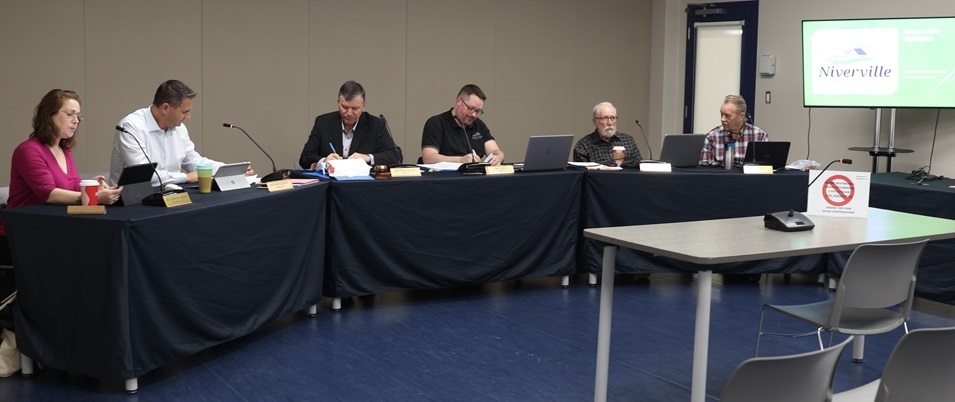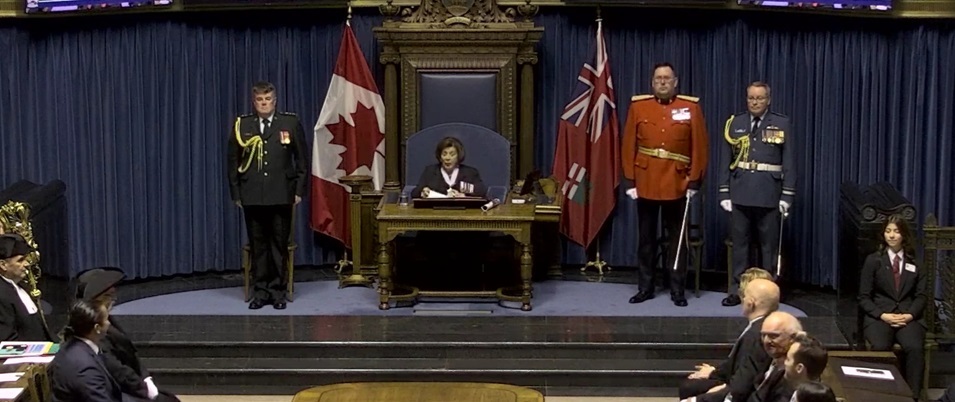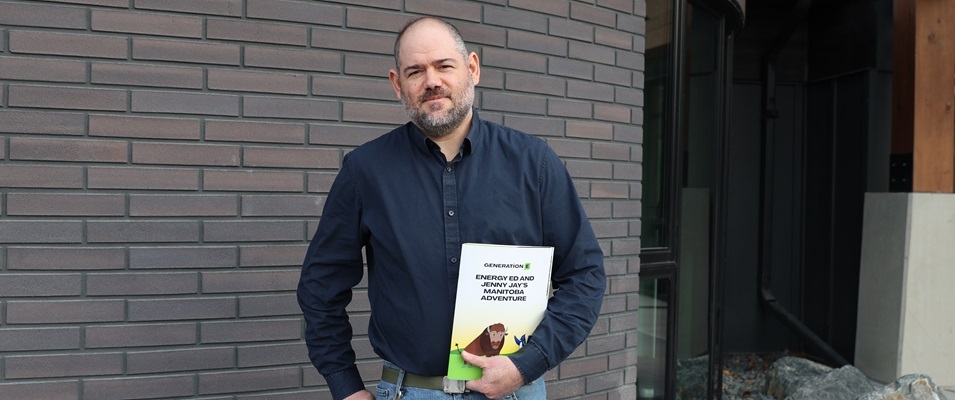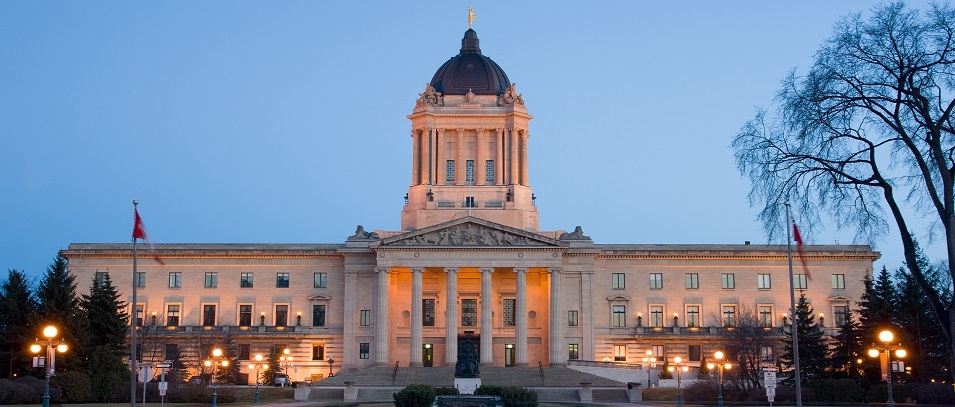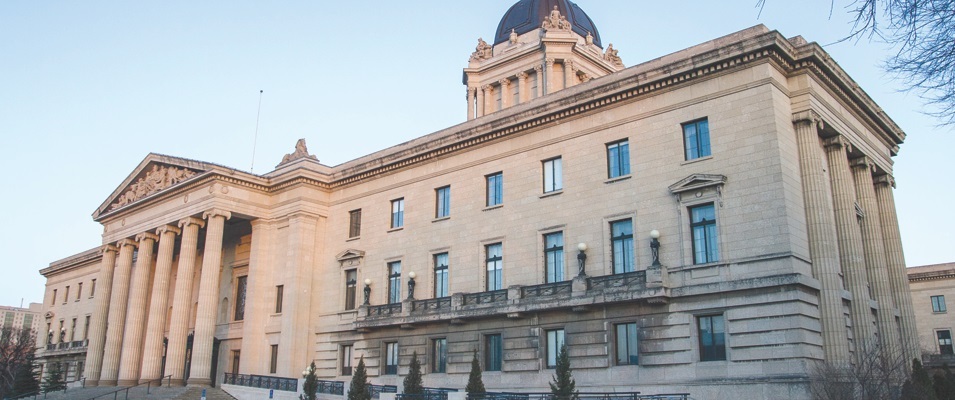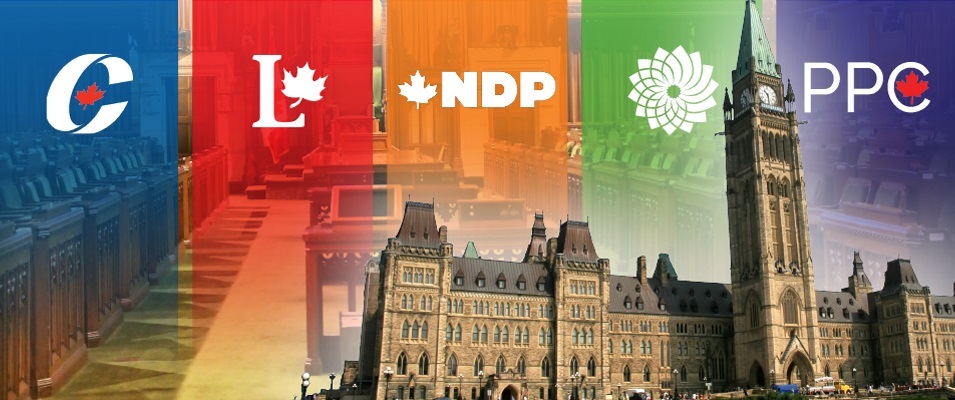
Today is Election Day in Canada, and the polls will be open until 8:30 p.m. To find out where to vote, visit the Elections Canada website (see below) and enter your postal code. The Citizen encourages everyone to get out and vote.
If you haven’t yet decided who to vote for, The Citizen has prepared profiles for all of the candidates in the Provencher riding.
Trevor Kirczenow, Liberal Party of Canada
Transgender health researcher, LGBTQ2 advocate, and author Trevor Kirczenow, formerly a professional violinist, is representing the Liberal Party of Canada in Provencher.
Kirczenow, one of the first openly transgender candidates in Canadian history to run for a major party in a federal election, operates a farm near Dugald, Manitoba with his husband and two children.
He says that in Provencher “many people have felt marginalized and shut out” of political discussions.
“I felt that not all voices were being represented,” Kirczenow says. “I have experience in bringing diverse communities together and would welcome the opportunity to serve all Provencher residents.”
Originally from British Columbia, Kirczenow performed as a violinist with the Vancouver Symphony Orchestra while attending the University of British Columbia, where he received a Bachelor of Arts in political science. After graduating, he went on to perform for the Winnipeg Symphony Orchestra, retiring upon the birth of his first child. His biography, titled Where’s the Mother? Stories from a Transgender Dad, was published in 2016 and was covered by The New York Times and The Toronto Star.
Kirczenow also volunteers for La Leche League, a breastfeeding support organization. In 2014, he formed a University of Ottawa-based research team to examine the experiences of transgender parents with pregnancy, birth, and infant feeding. The study was funded by the Canadian Institutes of Health Research and led to the first published, peer-reviewed medical research about transmasculine infant chest-feeding.
The Liberal Party has announced that, if re-elected by Canadians, they will make significant investments in healthcare, including what Justin Trudeau has called a “down payment” towards a national pharmacare program. While the party has yet to announce specific details regarding the program, Kirczenow shared his thoughts regarding the proposal.
“Canadians have talked about national pharmacare for many years, and now is the time voters can make it happen,” he says. “The Parliamentary Budget Officer, who determines the cost of proposed legislation, conservatively estimated the annual savings potential of a national pharmacare plan at $4.2 billion. Other studies suggest much higher savings. A national pharmacare program would be both compassionate and fiscally conservative, but Conservative Party leader Andrew Scheer is opposed to it. The Liberals, NDP, and Green all support it.”
The Liberal Party would also commit Canada to net-zero carbon emissions by 2050, as pledged at the United Nations Climate Action Summit 2019, and would phase out the use of coal power by 2030.
“We aim to introduce tax-free home retrofit loans to help lower everyone’s carbon footprint and save money on home heating,” says Kirczenow. “We also need compassionate, science-based policies to support our farmers who are facing climate extremes that increase risks to crops, hay, and livestock. Environmental protections must be strengthened along with economic growth.”
He adds that people around the country, and in Provencher specifically, are concerned about the rising cost of living. The Liberals have generally focused on affordability during the election campaign, promising to cut middle-class taxes and lower cell phone bills while committing greater funding to families, building accessible childcare spaces, and promoting start-up businesses.
“I hope to be a responsive Member of Parliament for all the many communities in our diverse riding,” Kirczenow says. “Growing infrastructure, such as high-speed internet, is one key to sustaining our rural way of life by extending economic opportunities. I also want to ensure we do not go back to muzzling scientists as was the policy under Harper. Our farmers need the best climate research to ensure they can understand and address the significant changes they are seeing already.”
Ted Falk, Conservative Party of Canada
First elected as an MP for the Conservative Party of Canada in the 2013 byelection, Ted Falk has served the people of Provencher for about six years. Since that time, Falk has served as Vice-Chair of the Justice and Human Rights Committee and Deputy Shadow Minister of Employment, Workforce, Development and Labour. He’s also held positions on the Natural Resources, Public Safety, National Security Committee, Public Accounts, and Canadian Heritage committees.
Falk and his wife Irene live in the Steinbach area, where they’ve raised three children and have been blessed with ten grandchildren.
According to Falk, one of the Conservative Party’s leading policies is to reduce taxes for average Canadians. They plan to do this in a number of ways.
Their universal tax cut strategy, they say, will allow double-income couples making an average salary to save more than $850 per year. As well, federal taxes will be eliminated on income earned through EI maternity and paternity benefits.
Seniors, too, will benefit. The Conservatives plan to increase the age credit by $1,000, meaning low- to middle-income seniors would see a savings on their income taxes of up to $150 more per year.
Homeowners will see tax relief on their home heating and electricity bills, as the Conservatives intend to eliminate the GST on those utilities.
Falk says buying a home will also become easier under a PC government.
“Andrew Scheer understands the kitchen-table issues facing Canadians,” Falk says. “Our Conservative team is working hard to create common-sense policies that will help Canadians get ahead.”
Their policies also include taking a different approach to climate change and environmental protection.
“Conservatives have a proud legacy when it comes to protecting Canada’s natural environment and improving Canada’s environmental performance,” Falk says. He adds that greenhouse gas emissions can be lowered and the environment can be strengthened without unnecessary taxation.
Their strategy is based on three primary principles: promoting green technology, taking a leadership role in global climate change, and creating a plan to protect Canada’s air, land, water, and wildlife.
“Canada’s Conservatives understand that Canadians need tax relief, not more new taxes,” says Falk. “You cannot tax your way to a stronger economy any more than you can tax your way to a cleaner environment. That’s why the first act of a new Conservative government will be to scrap the Liberal carbon tax.”
The Conservative party also hopes to take a hard line on corporate handouts and subsidies.
“A new Conservative government will cancel hundreds of millions of dollars in corporate welfare handouts to wealthy executives, shareholders, and foreign companies,” says Falk. “We will conduct a review of all business subsidy programs in order to eliminate $1.5 billion in corporate handouts that don’t create jobs and support economic growth in Canada. Those savings would instead go towards new measures to help hard-working Canadians.”
Bringing this all closer to home, Falk says his party will repeal the Liberals’ tax increases on small business as well as eliminate much bureaucratic red tape, which will benefit the many small businesses in Provencher.
Janine Gibson, Green Party of Canada
For the past thirty years, Janine Gibson has been advocating for organic farming, but this federal election season she wants to advocate for all Manitobans on behalf of the Green Party of Canada.
Gibson has strong roots in rural Manitoba. She grew up on her family’s ranch outside of Oakbank and continues to connect to the realities of farm living. However, her studies at the University of Winnipeg in English and Psychology, and later Human Ecology at the University of Manitoba, has allowed her to gain a broader understanding of the whole country.
“I’ve lived in Winnipeg, Toronto, and Los Angeles, but I call Manitoba home,” Gibson says. She currently lives in Steinbach in an environmentally sustainable home.
She is the owner of Creative Health Consulting, a healthcare consulting business, but her true passion is in organic farming. Gibson has chaired and consulted with many groups, such as the Organic Food Council of Manitoba and the Canadian Organic Growers. Gibson has seen great economic success for organic farming in Manitoba and wishes to see the momentum grow.
“Organic farming hires more people and creates more jobs,” said Gibson.
Gibson has also seen organic farms flourish as small businesses, and if elected she plans on helping small businesses in Manitoba. She says that the people of her community thrive and enjoy their work in owning and operating their own businesses, as opposed to having to leave the community for work in cities.
The principles of the Green Party strike a chord for Gibson, as they focus on the importance of building a more sustainable society for everyone. The party looks at the convergence of healthcare, ecological sustainability, and the economy.
Gibson herself does not have any official plans for the Provencher riding, but she desires to help small businesses grow and provide a better array of services and jobs to our local communities. She believes passionately that sustainable living can help the economy grow.
She identifies the strong leadership of Green Party leader Elizabeth May as being an important factor in her personal decision to run for political office. In the recent provincial election, she also represented the Green Party of Manitoba in the Steinbach riding.
Wayne Sturby, People’s Party of Canada
Wayne Sturby, Provencher’s candidate for the People’s Party of Canada (PPC), lives in Lorette with his wife Margaret. Together they are the proud parents to two children and grandparents to five.
The People’s Party of Canada is a new federal party established in the fall of 2018 by Maxime Bernier, a former cabinet minister for the Conservatives. Bernier began to build the People’s Party after losing to Andrew Scheer in the Conservative Party leadership race in 2017.
In 2016, Sturby ran as a candidate for the newly created Manitoba Party. While he wasn’t elected, he gained valuable political experience. In November 2018, he joined the People’s Party and became president of that party’s Provencher Riding Association.
“I decided to run for the PPC a couple of months ago… because of the fantastic policies that put the interests of Canada and its citizens above everything else,” Sturby says. “I could no longer support the [Conservatives] after Andrew Scheer made it clear in which direction he was taking the party.”
His choice to join the People’s Party, he says, is largely due to their commitment to put Canada first in all of their policies. He was also impressed by the pillars on which they stand—freedom, fairness, respect, and responsibility. Freedom, he says, includes a Canadian’s right to own firearms. Responsibility entails holding elected officials accountable for unethical behaviour.
In his opinion, two ideologies separate political parties: right-wing and left-wing thinking. Left-wing thinking, he says, leans on governmental control of the people. In contrast, right-wing thinkers believe foremost in the rights of individual citizens, limiting the government’s role to protecting those rights.
“Most political parties have moved further and further left and have extended more and more powers to the government,” Sturby says. “This… makes the individual [citizen] a servant to the government instead of the other way around.”
The People’s Party platform this election includes a pledge to create a fairer taxation policy for Canadians, putting money back into people’s pockets. As well, they plan to take a more sensible approach to immigration.
“The PPC recognizes the contributions of those who have immigrated to our country and we value them, but we do not want to compromise our safety, our values, our traditions, and our fundamental respect for our constitution,” says Sturby. “Our immigration policy will require new immigrants to assimilate to our Canadian values and to our way of life.”
Supporters of the People’s Party say that their concerns lie with immigrants who come to Canada primarily to take advantage of its generous social programs.
Finally, Sturby adds, the People’s Party will not pander to special interest groups and won’t create individual policies that apply to specific provinces.
“We only have policies for all of Canada and the PPC is the only party to clearly state that we will fix the equalization payments formula,” Sturby says.
He further believes that Provencher is home to many individuals who still cherish traditional values and are fearful of having their voices silenced.
“We are a diverse country with many different points of view, but there has been an escalating frontal attack on those who are not ‘politically correct’ and who don’t support the new PC ideology,” Sturby says.
Erin McGee, New Democratic Party of Canada
Île-des-Chênes resident Erin McGee has had a busy year campaigning for the New Democratic Party. The NDP candidate for Provencher wrapped up her provincial campaign for La Verendrye on September 10 and began campaigning for the federal party the very next day, when the election was called.
McGee, President of the Canadian Office and Professional Employees Union Local 342, has served in that union position for over a decade. She is an administrative support worker for the Manitoba Nurses Union as well.
The New Democratic Party of Canada under the leadership of Jagmeet Singh, who was selected to lead the party in 2017, has committed to strengthening and expanding public healthcare in Canada. If elected, the party would implement a publicly funded national pharmacare program.
They have also promised various anti-poverty measures, and would invest significantly in the construction of new housing stock, creating what they estimate to be an additional 500,000 housing units across Canada.
Also proposed by the NDP is a climate-change-oriented economic action plan that targets job creation and emphasizes the transition “to a clean energy, carbon-free economy.”






